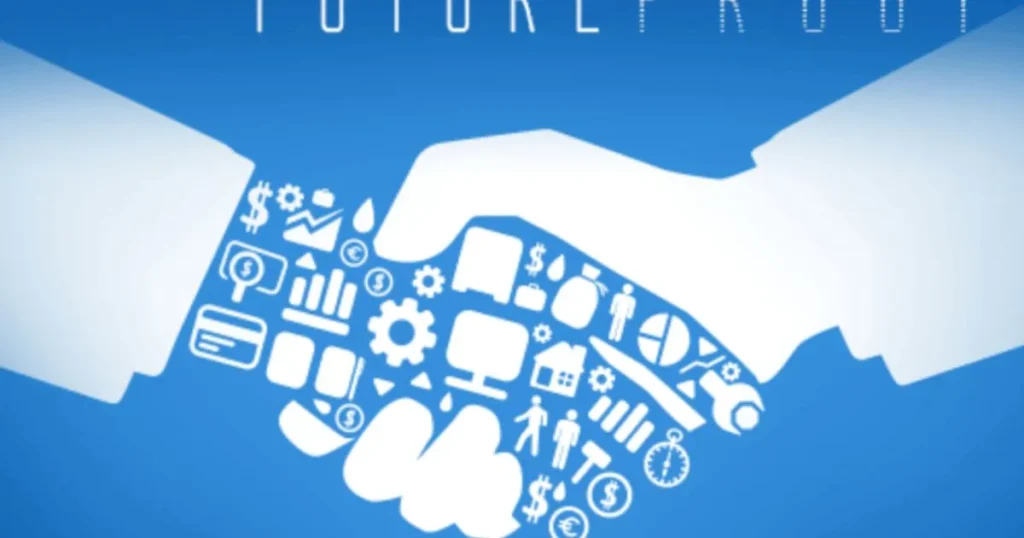Technology modernization allows companies to leverage new innovations to transform their business for the digital age. This process of modernization is more than just a system upgrade it is a strategic imperative for any business hoping to thrive in today’s technology led business landscape. By embracing modern technologies businesses can develop new data driven capabilities improve collaboration both internally and with partners and deliver enhanced digital experiences for customers.
A core element of technology modernization is moving business critical workloads and applications to the cloud. Leveraging cloud technologies allows companies to be more agile and responsive to changing market conditions. The cloud provides scalable infrastructure that can quickly adapt to meet fluctuating compute demands. It also enables new deployment models like hybrid cloud that blend on premise and cloud based systems.
Understanding Technology Modernization
Technology modernization involves assessing an organization’s existing IT infrastructure and determining what needs to be updated replaced or supplemented to meet current business objectives. This may include migrating systems to the cloudn upgrading legacy platforms implementing new security solutions or adopting emerging technologies.
Modernization is an ongoing process as technologies and customer needs continuously evolve. It allows businesses to derive more value from their existing IT investments while preparing for future innovation. Keeping up with these adjustments can be as easy as staying aware of how Instagram Story trends are evolving alongside other advancements.
The Benefits of Technology Modernization
Modernized systems provide improved collaboration tools that allow employees to work together seamlessly regardless of location. Streamlined workflows reduce redundant tasks, freeing up time to focus on more strategic work.
Increased Efficiency
Modernizing outdated systems allows businesses to streamline workflows and automate manual tasks. This saves time and money by reducing redundant work. Technologies like robotic process automation help boost productivity across operations.
Enhanced Customer Experiences
With modern tools, companies can gain deeper customer insights and deliver engaging digital experiences. Customers enjoy personalized service convenience and around the clock access through various channels. This strengthens loyalty and competitive differentiation.
Flexible Infrastructure
Adopting cloud mobile and other modern platforms gives infrastructure flexibility. IT resources can rapidly scale up or down as needed allowing workflow to seamlessly adapt to changing business requirements. This boosts agility for innovation and underscores the critical role of technology in enabling adaptable and scalable business operations.
Improved Collaboration
New collaboration technologies empower employees to work together seamlessly regardless of location. Online workspaces facilitate information sharing and teamwork across departments and time zones.
Talent Retention
By offering digital tools and mobility, companies attract and retain top talent expecting modern ways of working. Younger employees particularly value technologies that enhance their jobs.
Enhanced Security
Modern solutions generally have stronger built in security capabilities. Regular updates also help patch vulnerabilities promptly. Digital transformations thus improve a business’s overall security posture.
Future Proofing

Rather than constant catch up modernization positions businesses to benefit immediately from emerging innovations. They can test new concepts safely and scale successes across operations efficiently.
Cost Savings
Over time new systems eliminate maintenance fees for outdated platforms. Cloud utilization helps optimize existing IT investments and budgets according to real needs. That covers the top benefits of technology modernization in easy sequential steps. It enhances key facets of business from customer to cost to compete more effectively now and tomorrow.
Transforming Customer Experiences
Delivering exceptional customer experiences is critical for businesses in today’s competitive, digital-first world. Technology modernization can help by providing insights into customer behavior and powering new engaging digital touchpoints. Modern data analytics tools extract valuable patterns from customer data to improve personalization and drive targeted campaigns.
By modernizing platforms and adopting technologies like cloud and mobile companies give customers engaging experiences anywhere. Applications and services can be accessed from any device at any time. This kind of ubiquity and personalization strengthens customer relationships and loyalty. It also enables new digital business models and revenue streams oriented around delighting customers.
Empowering Employees

For employees technology modernization delivers tools and resources to work productively from anywhere. A digital workplace powered by modern collaboration platforms allows staff to easily connect regardless of location. Resources like intranets and portals give employees self-serve access to the information and applications essential for their roles.
Productivity is also boosted through technologies like robotic process automation. By automating routine manual tasks employees have more time for high value work. Modernization further empowers the workforce through mobile technologies. Field staff can securely access systems and data in real time using smartphones and tablets. This grants valuable insights wherever work needs to be done.
Overcoming Challenges and Considerations
While the benefits of technology modernization are substantial successful transformation does require navigating potential challenges. Legacy systems may be difficult to update or migrate due to complex dependencies and interfaces. Resolving integration issues and ensuring business continuity during the process requires careful planning and testing.
Resource requirements like funding skills and vendor support must also be considered. Other considerations involve organizational readiness. Leaders must communicate the strategic rationale and goals to gain employee buy in for change. Technology leaders need executive support to drive initiatives forward. Change management efforts help train staff on new systems and work processes.
Modernization ultimately means adapting organizational culture to keep pace with technology advancement. With inclusive planning and execution companies can achieve smooth productive transformation.
FAQs
What are the Main Benefits of Technology Modernization?
Some key benefits include increased efficiency enhanced customer experiences flexible infrastructure improved collaboration talent retention security improvements cost savings and future proofing the business.
How can Modernization Transform a Business for the Digital Age?
By upgrading outdated systems and adopting tools like cloud analytics and mobile technologies businesses can gain strategic capabilities to deliver digital experiences innovate new services.
What Types of Legacy Systems Require Modernization?
Common systems that need updating include outdated enterprise resource planning (ERP) platforms customer relationship management (CRM) systems data storage infrastructure security applications and on premise data center architecture.
What Challenges can Occur during a Modernization Project?
Potential challenges include complexity of integrating newer systems with legacy platforms ensuring business continuity during migration change management impacts budget and resource requirements.
How should Businesses start their Modernization Journey?
Businesses should conduct a thorough assessment of their current IT assets and future goals. With executive support a phased strategy and roadmap can be created addressing priority areas for investment.
Conclusion
leveraging technology modernization is key to transforming businesses for the digital age. By upgrading outdated systems and adopting modern tools companies can gain strategic advantages to enhance customer experiences empower employees boost efficiency and future proof operations. Modernizing technology ensures businesses can effectively compete in today’s rapid market by preparing the foundation to leverage all that digital innovation has to offer.
